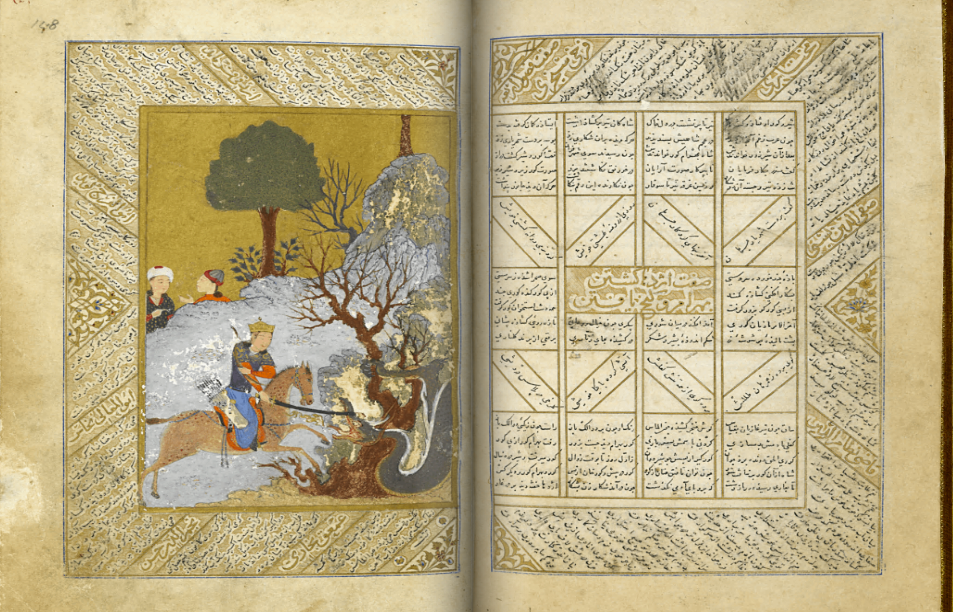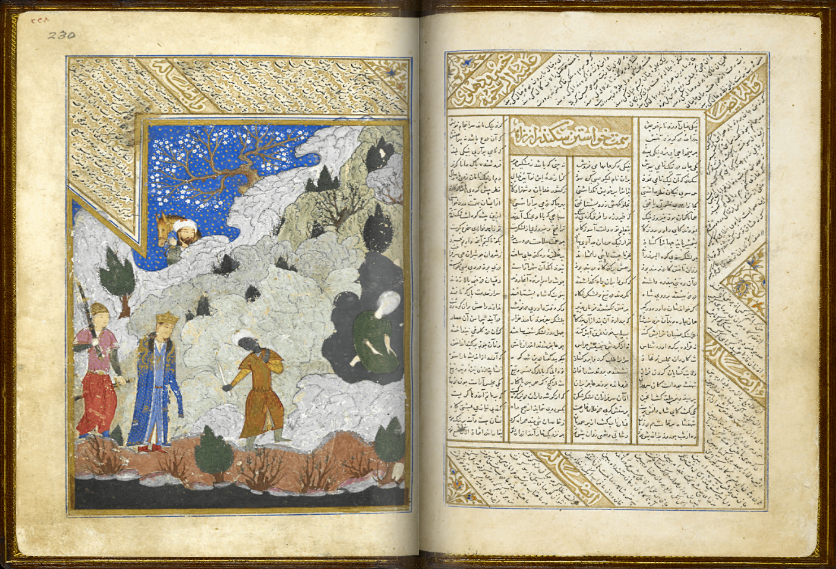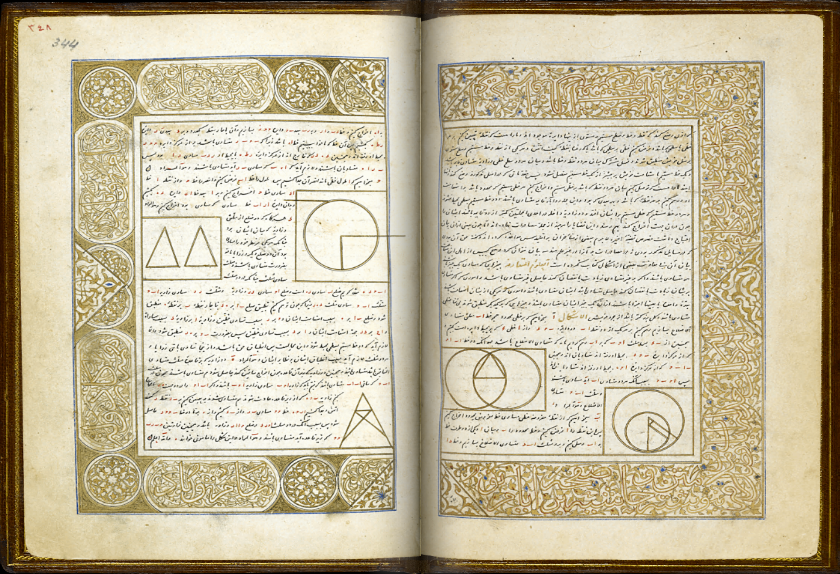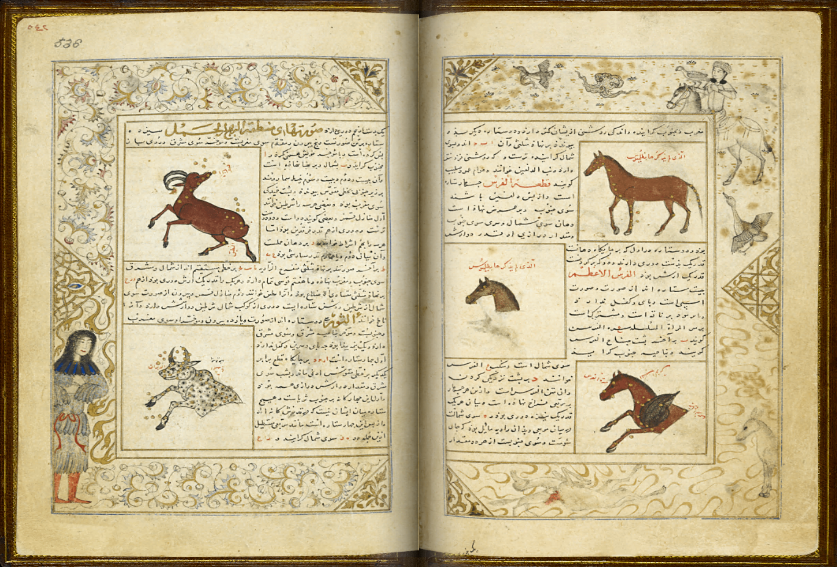The Miscellany of Iskander Sultan

It’s relatively difficult to find decent shortlists of the most beautiful books ever made. Here’s an all-European one made by a medievalist and facsimile expert, with the Lindisfarne Gospels as number one.
I wonder where the Miscellany of Iskander Sultan might fit in if you made the list worldwide. It’s 15th century, Persian, tiny, and gorgeous. It’s certainly one of the most beautiful books, cover to cover, I’ve ever seen. (You can peruse the pages at the British Library’s website).

Its content is also much more my speed:
Imagine being a position to commission a magnificent one-volume selection of the reading matter you would most like to carry around on your travels - a kind of miniature personal library. With no expense spared, you could order the most skilful calligraphers in the land to write it, the best painters to illustrate it, the best illuminators to decorate it, the best binders to bind it…
[The 23 texts in the Miscellany] include a wide-ranging selection of religious, narrative and lyrical poetry; in prose, there are treatises on astronomy and astrology, geometry, medicine, farriery, alchemy, history, and Islamic law.
It’s just 5” by 7”. This was a personal book, fashioned to look like a jewel box.

It’s a Borgesian fantasia.
Although the paintings are marvelous, it is the formatting of the text that makes the book truly striking. The manuscript is collage-like in appearance. The text is arranged like a work of architecture, each chunk of calligraphy interlocking with another like the pieces of a puzzle box. The gathered excerpts that comprise the Miscellany are stitched together on its pages like patches on a quilt. Sections of text stack on top of one another, interlaced like fretwork. Bursts of flowers and tangles of vines fill the empty spaces between sections of writing. In one spread, a poem sits in a block at the center of each page, while another poem radiates out from it like rays of light. In another, a bright painting fills the page, while a golden block of text zigzags around its corner. The pages of this book cannot be read in the usual way. They must be navigated and explored, wandered through like labyrinths.

How exciting is that?





Stay Connected